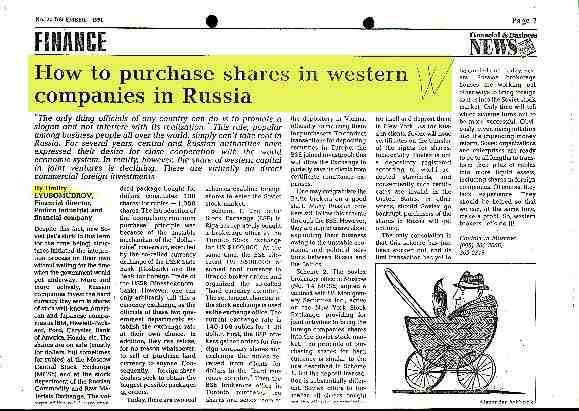![]()
Publications. Financial Articles : # 5
| How to purchase shares in western companies in Russia | |
 |
Article in the Newspaper
"Financial & Business News", # 24, December 1991, page 7. Author - Dmitry
Lyubomudrov
|
![]()
- "The only thing officials of any country can do is to promote a slogan and not interfere with its realization." This rule, popular among business people all over the world, simply can't take root in Russia. For several years, central and Russian authorities have expressed their desire for close cooperation with the world economic system. In reality, however, the share of western capital in joint ventures is declining. There are virtually no direct commercial foreign investments